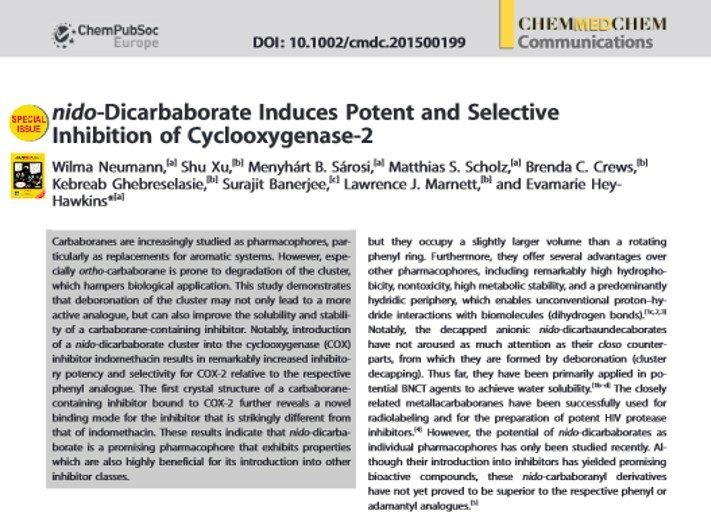Scientists of Vanderbilt and Leipzig University improved drug effects of Indomethacin
(Leipzig/Nashville, 02/03/2016): Scientists at Leipzig University and Vanderbilt University (USA) reduced the side effects of Indomethacin by altering the so-called boron cluster molecule of this drug. This molecule have a spherical shape – composed of boron, hydrogen and carbon atoms. The active ingredient causes an inhibition of the enzyme cyclooxygenase, which plays an important role in production of inflammations and pain. But Indomethacin also leads to severe side effects. The scientists changed the drug, so that it blocks only the pathological form of the enzyme. The other form, which controls important physiological processes in the body, would barely be affected.
The results underline the potential of boron clusters in pharmacytical application and could contribute to drugs development. They published their results in the prestigious journal “ChemMedChem”.
Publication: Neumann, Xu, Sárosi, Scholz, Crews, Ghebreselasie, Banerjee, Marnett, Hey-Hawkins (2016): nido-Dicarbaborate Induces Potent and Selective Inhibition of Cyclooxygenase-2. ChemMedChem. 11:2016, 175–178. doi: 10.1002/cmdc.201500199.
The article continues the series of numerous publications that have emerged already from the long-term collaboration between the Leipzig University and Vanderbilt University.
Press Release: Chemiker verändern Schmerzwirkstoff – Hoffnung auf weniger Nebenwirkungen durch Borcluster (Febr. 03, 2016)

